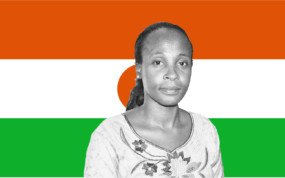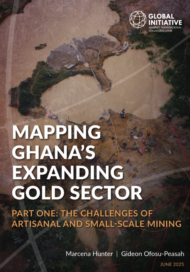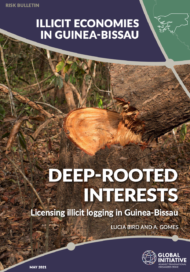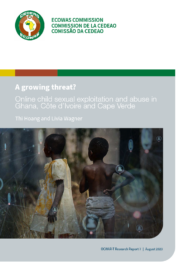Posted on 25 Jan 2021
The Global Initiative Against Transnational Organized Crime (GI-TOC) joins calls of support to journalist Moussa Aksar in his court case following a major investigation on corruption in Niger’s defence sector. Aksar led a successful investigation that contributed to uncovering overbilling and non-delivery of military material in Niger. The embezzlement of around US$132 million was later confirmed by an internal audit of the Defence Ministry, requested by Nigerien President Mahamadou Issoufou.
However, on 8 January 2021, Aksar was summoned to court in a defamation lawsuit brought against him by a Nigerien national living in Brussels. The plaintiff filed his complaint in the Nigerien courts following a September 2020 article in which Aksar mentioned that he was linked to the creation of a shell company used to funnel government funds meant for military spending. The article was based on information regarding suspicious financial transactions acquired through the FinCEN Files leak, which uncovered more than 2 500 documents leaked from the US Treasury’s Financial Crimes Enforcement Network. Aksar has been asked by the plaintiff to pay XOF5 million (US$9 210) in reparation fees, a crippling sum by Nigerien standards.
Of greater concern is the risk that a law introduced in 2019 may be used against Aksar, under which he could face imprisonment. Article 29 of the 2019 anti-cybercrime law sets the penalty for online defamation at between XOF1 million (US$1 840) and XOF5 million (US$9 210), but includes provisions for six-month to three-year jail terms.
The use of defamation lawsuits and imprisonment to intimidate and silence journalists in Niger is not unprecedented. In 2008, Aksar was detained for six days in a Niamey prison and given a suspended three-month sentence in yet another defamation case. More recently, in June 2020, the GI-TOC condemned the arrest of Nigerien journalist Samira Sabou also due to a defamation lawsuit initiated by the son of the Nigerien president, Sani Issoufou Mahamadou.
The lawsuit was motivated by a Facebook post written by Sabou addressing the same allegations of corruption in Niger’s defence sector that Aksar was investigating. Although Sabou herself did not name the president’s son in her post, his name was mentioned by another Facebook user in a comment. Sabou was released on 28 July 2020 after the judge dismissed all charges of defamation against her. In the process, she spent 48 days in pre-trial detention.
The GI-TOC demands that Nigerien authorities reconsider the criminalization of defamation through the 2019 anti-cybercrime law, which can have a chilling effect on Niger’s brave but fledgling investigative journalist community. Imprisonment is not an appropriate response to defamation. The GI-TOC calls upon governments and international actors to join us in our plea. Investigative journalists such as Aksar and Sabou are at the forefront of the fight for transparency and good governance, which are at the heart of some of the most pressing issues linking organized crime and state corruption.
Aksar is a veteran investigative journalist in Niger, and known in West Africa for his work. He is the publishing director of L’Événement Niger, a leading news output for investigative journalism in Niger, and chairs the board of directors of the Norbert Zongo Cell for Investigative Journalism in West Africa, which led the FinCEN files investigations in Africa in collaboration with the International Consortium of Investigative Journalists. Aksar is one of a handful of courageous investigative journalists exposing organized crime and corruption in Niger. He has done invaluable work for his people and his country, receiving persistent scrutiny and intimidation – including death threats – along the way. National and international civil society organizations should apply pressure on the Nigerien government and allied foreign states to stop persecuting journalists who, like Aksar, take these bold risks.
Niger ranked 16th out of 54 African countries on the 2019 Organised Crime Index for Africa. The country’s criminality score is considerably higher than the continental average, while the score measuring the country’s resilience to crime is below the continent’s resilience mean. Niger’s location, at the heart of the Sahel region, has made it a hub for drugs, arms and human trafficking along trans-Sahelian routes. The political class has also been accused of profiting from the prevalence of crime, some even linking President Issoufou’s rise to power to alliances with criminal actors. In such a context, civil society and the media are increasingly important in exposing abuses of power and investigating crime. Issoufou has an opportunity to set his record straight before the second round of the presidential elections scheduled for next month and recognize the important role that civil society organizations can play in overcoming the many challenges faced by the country.
Moussa Aksar has been a regular collaborator and contributor to the GI-TOC. Much of our work in the Sahel would not have been possible without his valuable contributions. We send him our full support in this court case and future investigations to come.
This blog represents the views of the Global Initiative Against Transnational Organized Crime. It was drafted by Alexandre Bish, GI-TOC Senior Analyst



